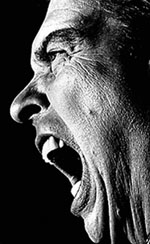 |
|
Links
|
|
To: {GENDER} {FIRST_NAME} {LAST_NAME} {TITLE}, {COMPANY_NAME} |
|
Dear {GENDER} {LAST_NAME}: 
Political civility in America seems to have taken a dive southward, with a recent spate of rude outbursts, accusations and the ever-blaring talk shows. Calmer-minded pundits lament the loss of civility and basic decency in American political discourse. One way to understand the current situation is to explore the history of political incivility in America – from the poisoned atmosphere preceding the Civil War to the McCarthy era and Watergate. In light of this checkered past, it would be difficult to argue, “it’s the worst it’s ever been.” How, then, does one gauge standards of civility in the present time? Often overlooked in the discussion is the role of the First Amendment and religious liberty in America’s civil discourse. The First Amendment not only guarantees freedom of speech – either civil or uncivil – but it also ensures that the government will not interfere with religious practice or impose religious doctrine on its populace. The Religious Liberty Clauses thereby foster pluralism as a civic ideal. According to Professor Philip Goff of Indiana University-Purdue University Indianapolis, pluralism is a philosophical commitment to diversity, a belief that there is some intrinsic good in difference. Implicit in this philosophy is respect for difference, which translates to civility. Pluralism with respect to religion filters down to many different layers and forms the bedrock of civil society. See more on political civility and the First Amendment on SageLaw. 
Professor Goff is quoted in the University of Massachusetts Press book, Religious Liberty in America: The First Amendment in Historical and Contemporary Perspective by Bruce T. Murray. In addition to discussing political civility, Religious Liberty in America surveys the development of religious pluralism in America for the past 400 years – from early colonial times to present controversies, such as the mixing of religion and politics, battles over religious symbols in the public square, the “culture wars,” immigration and faith-based initiatives. Religious Liberty in America was selected by Choice – a publication of the Association of College and Research Libraries – as an “Outstanding Academic Book."
Religious Liberty in America is available at libraries throughout North America, and it may be purchased from the University of Massachusetts Press. Read about the author on SageLaw. |

